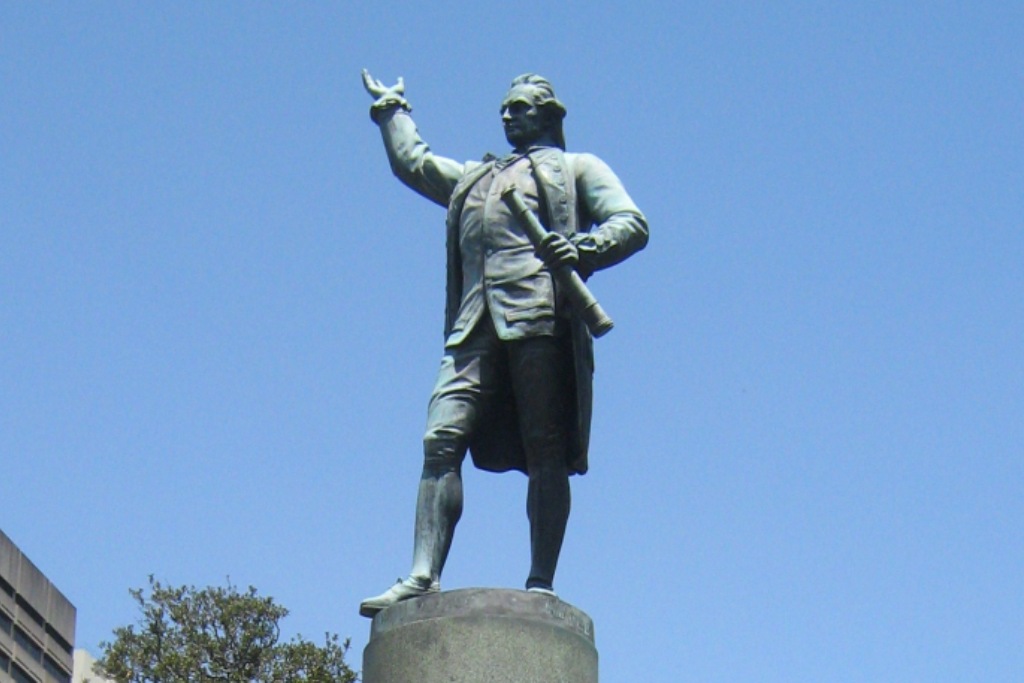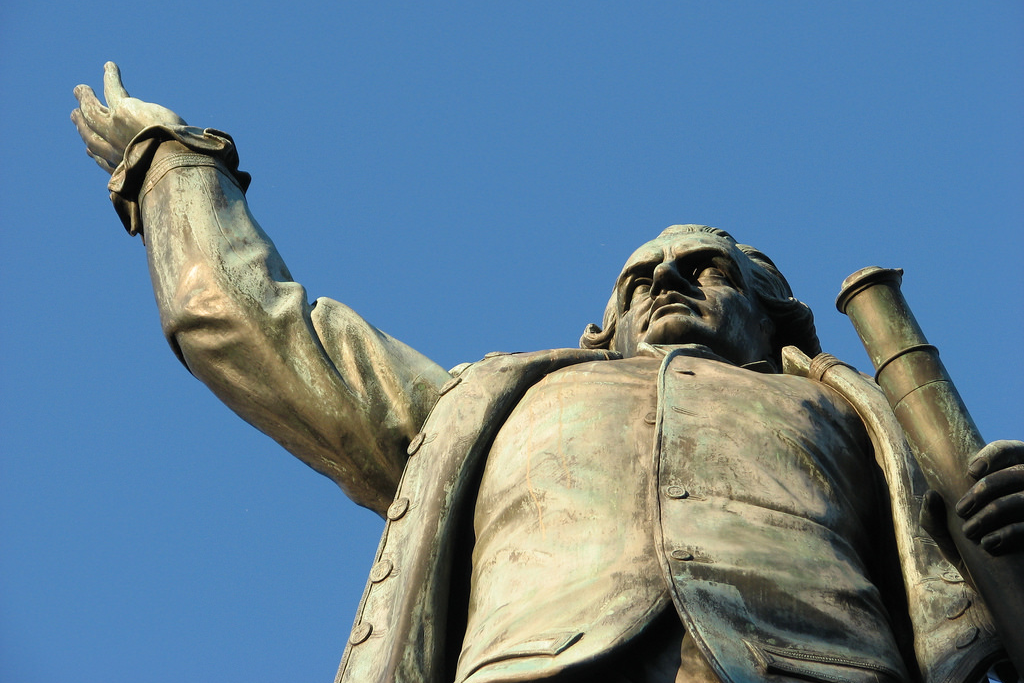The Government Wants To Jail People Who Vandalise Statues Of Captain Cook
Culprits could face prison sentences of up to seven years.

The federal government is looking to punish people who vandalise historic statues, by pushing for new penalties that could see culprits serve up to seven years in prison.
According to The Sunday Telegraph, the Turnbull government has asked the Heritage Council to place several statues of Captain James Cook on the National Heritage List. Anyone caught defacing the statues could face jail time, as well as fines of up to $88,000.
The push comes after a statue of Cook in Sydney’s Hyde Park – which bears a plaque controversially declaring that the explorer “discovered this territory” – was spray-painted with the words “change the date” and “no pride in genocide” late last month.
The incident heaped fuel on the debate surrounding Australia’s colonial statues, with Malcolm Turnbull claiming it was part of “a deeply disturbing and totalitarian campaign to not just challenge our history but to deny it and obliterate it”.
Regarding the increased penalties for politically-motivated vandalism, the Prime Minister told The Sunday Telegraph that his government would “not stand by and allow vandals to rewrite or tear down our history”.
“We should be proud of our nation’s remarkable Australian story, not embarrassed by it; we should embrace it, not obliterate it,” he said. “Australian history contains many painful chapters — particularly for Indigenous Australians — but a free society debates its past, it does not deny it. It builds new monuments as it preserves old ones.”
How do you feel about the graffiti on Captain Cook’s statue? This evening @KenWyattMP will discuss with @RNDrive. https://t.co/x0Zr44hEab pic.twitter.com/n2Ci9gfD2z
— RN – Radio National (@RadioNational) August 29, 2017
Despite Turnbull’s apparent sympathy for the feelings of Australia’s first peoples, his government has over the past few months become increasingly stubborn in its refusal to respect the Indigenous community’s feelings about the country’s ugly colonial history.
Attempts by a number of local councils to move the date of their Australia Day ceremonies have been met with heavy-handed interventions from Canberra, while in January deputy prime minister Barnaby Joyce described Invasion Day protesters as “miserable gutted people” who ought to stop “weeping and gnashing [their] teeth”.
On Wednesday, Turnbull met with Indigenous activist Clinton Pryor, who had just completed a year-long walk from Perth to Canberra in an attempt to raise awareness about Indigenous issues. According to Pryor, both the Prime Minister and the Minister for Indigenous Affairs Nigel Scullion “were disrespectful — speaking over the top of Aboriginal Elders to defend unfair policies — rather than listening respectfully”.
Ultimately, Pryor chose to walk away from the meeting “rather than continue listening to the PM attempting to defend the ongoing unfair and unjust treatment of Aboriginal people in this country”.
I turn my back an walk away from the PM. The picture say it all. – #ClintonsWalk pic.twitter.com/sqXUr6Qlut
— Clinton Pryor (@Clintonswalk) September 6, 2017
Meanwhile, both Turnbull and opposition leader Bill Shorten have been criticised for their failure to adequately engage with recommendation of the Referendum Council, which has called for the establishment of a First Nations assembly to advise federal parliament.
In light of all this, the government’s desire to jail people for an act of political protest seems about in keeping with how they’ve handled this issue so far.
—
Feature image via Wikimedia
